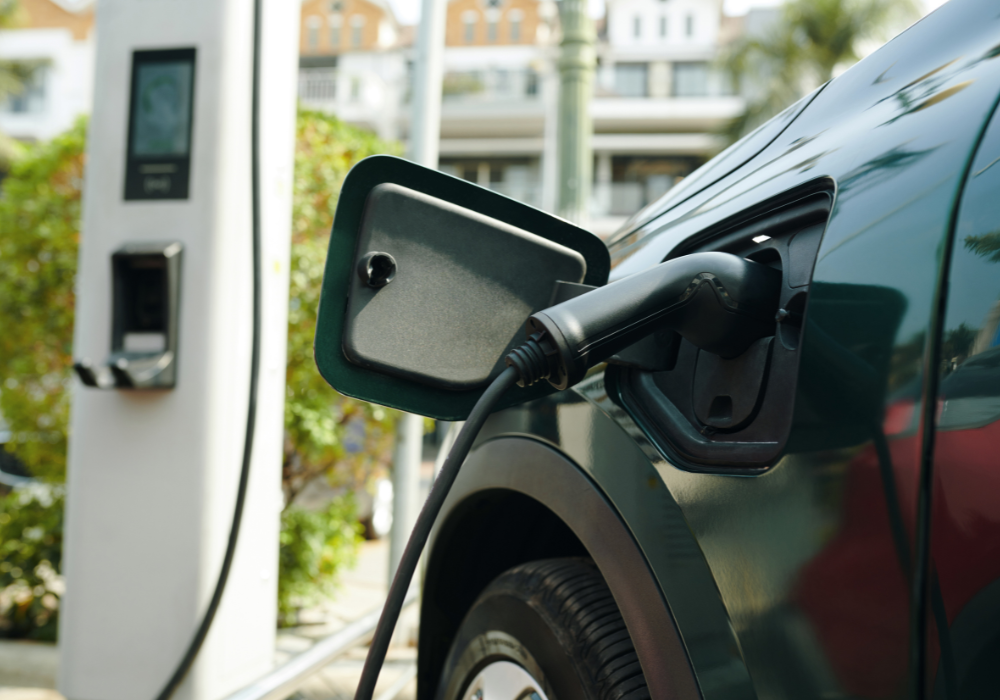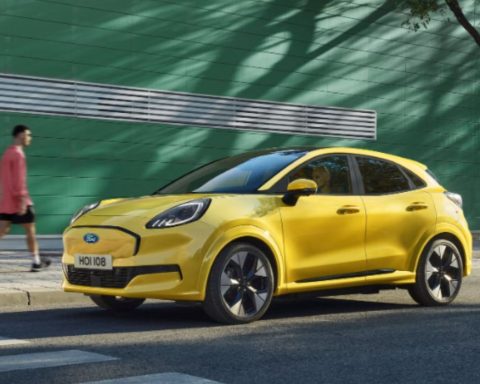Airbnb-style networks of home chargers for electric vehicles are an emerging global trend, with many start-ups vying for scale, such as EVmatch in the United States, GoPlugable in the United Kingdom and Ivygo in Australia. So far, none have managed to go mainstream, and community marketplaces for EV charging remain a niche phenomenon.
But a Quebec green-tech investor thinks he can break the mould and go mainstream.
This winter, François Boutin-Dufresne, a serial entrepreneur based in Montreal, is launching ShareCharge, an app that connects drivers with private EV chargers. In doing so, he hopes to solve the most pernicious challenge limiting EV adoption: range anxiety.
A 2024 J.D. Power study found that nearly three-quarters of Canadians described themselves as unlikely to buy an EV, with most citing limited range as the main obstacle. Surveys in Quebec, the leader in Canada when it comes to EV adoption, show that two-thirds of respondents also felt the charging network needs expansion, especially in rural areas, although data suggest range anxiety decreases over time for EV owners. In Quebec, some 80% of charging is done at home, making the jurisdiction a prime spot for ShareCharge’s proposition.
Boutin-Dufresne, a former economist for the Government of Canada and the International Monetary Fund, draws inspiration from Uber. ShareCharge would allow users to adjust prices according to supply and demand, with rates fluctuating up or down. For example, more expensive and efficient charging equipment would cost more to rent. He predicts that increased demand during holidays or major events will create hot spots where people can earn more from their chargers. Remote locations will also enable rural owners to charge a premium.
Boutin-Dufresne believes that civil society cannot sit by and wait for the government to build out the necessary EV infrastructure. “People need to take matters into their own hands,” he says.
Filling the infrastructure gap
Quebec launched Canada’s first public charging network for electric vehicles in 2011, before the technology really took off, and now has around 6,500 public stations in Montreal and nearly 30,000 across the province.
But its reach has remained too limited, Boutin-Dufresne argues. The impetus for ShareCharge came from his own struggles as an EV owner. He was tired of what he calls EV charging deserts where he has to travel three kilometres or more to replenish his car.
Boutin-Dufresne’s brash, fast-talking demeanour is reflected in his company. Prior to its planned official rollout in December, ShareCharge already purports to be “the world’s largest EV charging network” on its website, even though it had only 150 registered providers. But Boutin-Dufresne believes the network can quickly attract 10% of Quebec EV drivers and owners of home-charging stations, representing 40,000 new places to power up an EV.
New supply-chain ‘passports’ pave the way for more recycling of EV batteries
“Chargers on the side of the road cost the city of Montreal $50,000 each; ours cost the government nothing to improve access,” Boutin-Dufresne says.
ShareCharge is planning to expand across North America, though Quebec’s abundant, low-cost hydroelectricity will make the service more affordable there than in most other regions. Boutin-Dufresne is betting that Quebec’s fierce winters increase the appeal for drivers to have access to a large private network of EV chargers.
He aims to develop partnerships with Communauto, Quebec’s popular car-sharing service, and other vehicle rental companies. He believes the charging stations will attract Uber drivers, as well as more people who are not property owners, do not have private charging stations, and park their EVs on the street.
Lack of charging stations in high-rise buildings is cutting off access to EVs
But users who want to earn passive income from their EV chargers also have to shoulder the risk of things going wrong. ShareCharge takes care of quality control and validation for those who wish to rent out their charging stations, and individuals rely on the five-star rating system to avoid renting to users with undesirable behaviour, as is done on Uber or Airbnb. The company does not, however, cover risks that may arise from its use. If someone’s charging station is located in their garage and a customer’s car catches fire, it is up to the owner of the charging station to assume the risk.
Public versus private
The company’s plans also raise questions about government subsidies for private chargers. “It’s a public policy failure that the government, which invested massively in this infrastructure, did not think ahead and come up with this idea themselves,” says Thomas Hundal, an automotive journalist in Toronto.
Critics argue that the public sector should retain control of the charging economy to make it more accessible. “Across the world, governments are following the same modus operandi: they invest public funds to build a basic charging infrastructure so that, in a second phase, it becomes attractive for the private sector,” says Colin Pratte, a transport researcher at the Institut de recherche et d’informations socioéconomiques, a Quebec-based non-profit. He argues that instead of ceding the race for better charging infrastructure to private companies that “parasitize the sharing economy under the guise of enabling it,” it would be better to optimize public networks and keep prices low. Pratte believes EV charging is headed toward a repeat of the mistakes that led to the oil shock, where gas prices became unaffordable.
The Quebec government is preparing to invest nearly a billion dollars in its EV transition by 2028. According to its 2023 projections, there will be two million EV drivers in the province by 2030, though EV sales have been losing momentum since late 2024.
The Weekly Roundup
Get all our stories in one place, every Wednesday at noon EST.
Ophélie Dénommée-Marchand is a Quebec-based independent journalist with a focus on fact-checking and investigation. She’s also an encyclopedist for the Canadian Encyclopedia.







